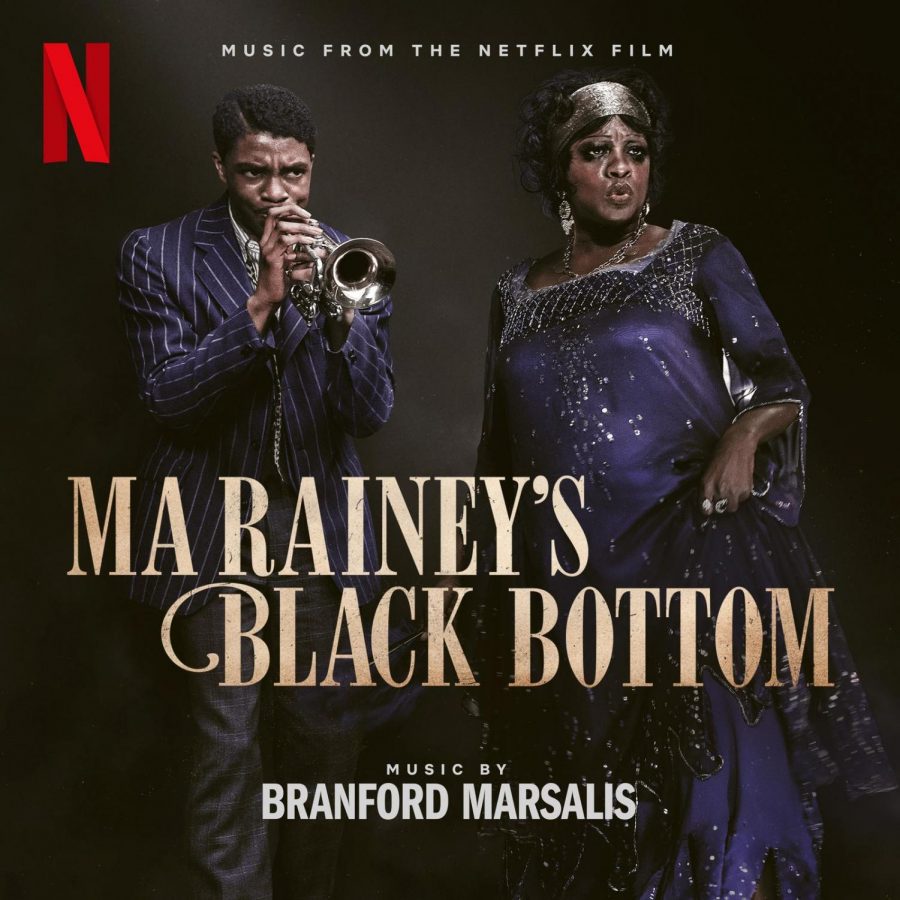Netflix gets it right with ‘Ma Rainey’s Black Bottom’
On Dec. 18, Netflix added another must-see original to their gargantuan streaming catalogue with the release of “Ma Rainey’s Black Bottom”.
Driven by powerhouse performances from lead actors Chadwick Boseman and Viola Davis, the film is a testament to the value of diversity in media and the inherent strength and importance of African American stories being told by Black voices.
Adapted from August Wilson’s play by the same name, the film takes place in Chicago in 1927. It details a tumultuous recording session where iconic blues singer Ma Rainey (Davis) continually clashes heads with ambitious trumpeter Levee Green (Boseman), as well as her manager Irvin (Jeremy Shamos) and studio owner Mel Sturdyvant (Jonny Coyne).
Staying true to the source material, much of the film is recognizable to the format of the play. Most of the sets are fixed, and storyline tension is built through characters interacting via dialogue and long dramatic monologues.
It is through these monologues that Davis and Boseman really shine in the film. Their stunning work in these scenes carries the story, pulling the audience in masterfully with their characters.
Donning extravagant makeup, magnificent costumes and all the swagger of a blues singing diva virtuoso, Davis owns the screen as Ma Rainey. Her pinnacle in the role is during a scene where she demands a break from recording so someone can go get her the Coca-Cola that she was promised.
After dialing the tension up to eleven while angrily dismissing her band members and management, Davis flips an emotional switch and tenderly confides her motivation to her longtime band leader Cutler (Colman Domingo).
During this monologue, Rainey expresses the struggle of African American artists dealing with racism and the exploitative nature of the record industry. She is aware of her value as a performer and asserts agency by leveraging her talents to ensure that she is treated with respect by the racist businessmen making money from her work. Lines like, “They don’t care nothing about me, all they want is my voice” position Rainey as a hero to the audience, one worthy of Davis’ powerful performance.
Boseman’s emotional apex as Levee occurs in a similarly intimate scene during a monologue that outlines an all too frequent reminder of what African Americans faced living in the Jim Crow south.
In a heated exchange during the band’s rehearsal time, Levee reveals the gruesome details of how as a child he had watched his mother being raped by a group of white men.
The account is written to be gut-wrenching, still the material is elevated to another level by Boseman’s utterly captivating performance. On screen, Levee’s expressions are so dynamic, the profound range of emotions displayed gives the audience a real sense of danger. This exposé of the rage that drives his character is done to tremendous effect.
These incredible acting performances are complimented with excellent cinematography and wardrobes. Don’t sleep on the visuals in this film, it is obvious the level of care that went into the designs and editing.
The film manages to successfully encapsulate the experiences of African Americans moving to major cities in the north by zooming in on this tale of what Black musicians were going through while trying to expand out of the south into northern media markets.
The racism and the almost maddening desire characters have to elevate themselves above the cruel circumstances of the times are all there for the audience to get a taste of.
All of this combined with the larger-than-life character of Ma Rainey, an iconic singer and Black queer woman who wasn’t afraid to express her sexuality in her songs, makes for a singular viewing experience.
Overall a crucially relevant and moving piece of art, do not miss out on this film.
Rating: 5/5 stars










